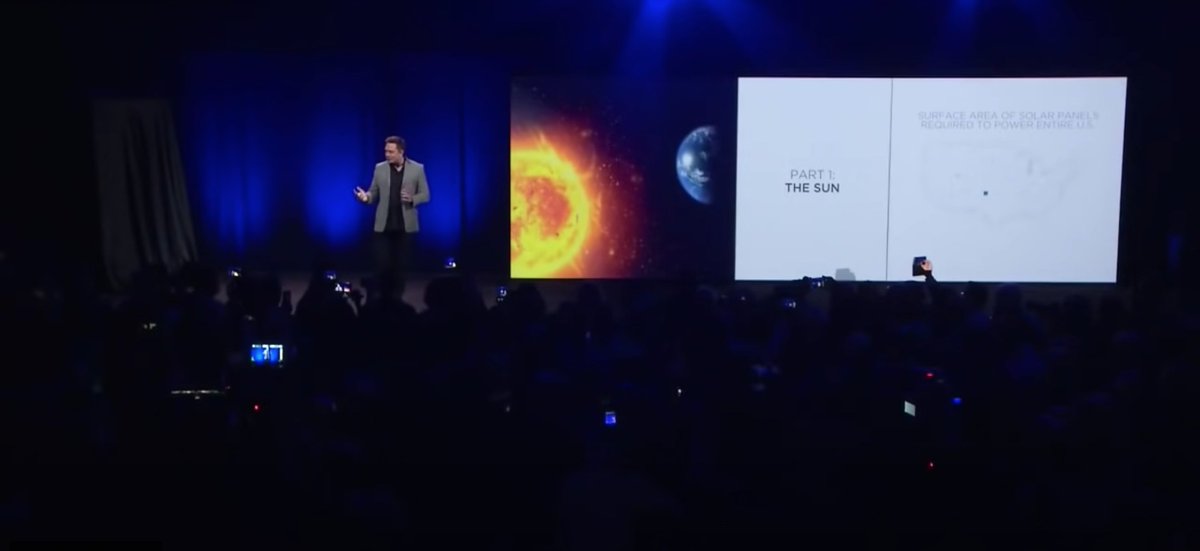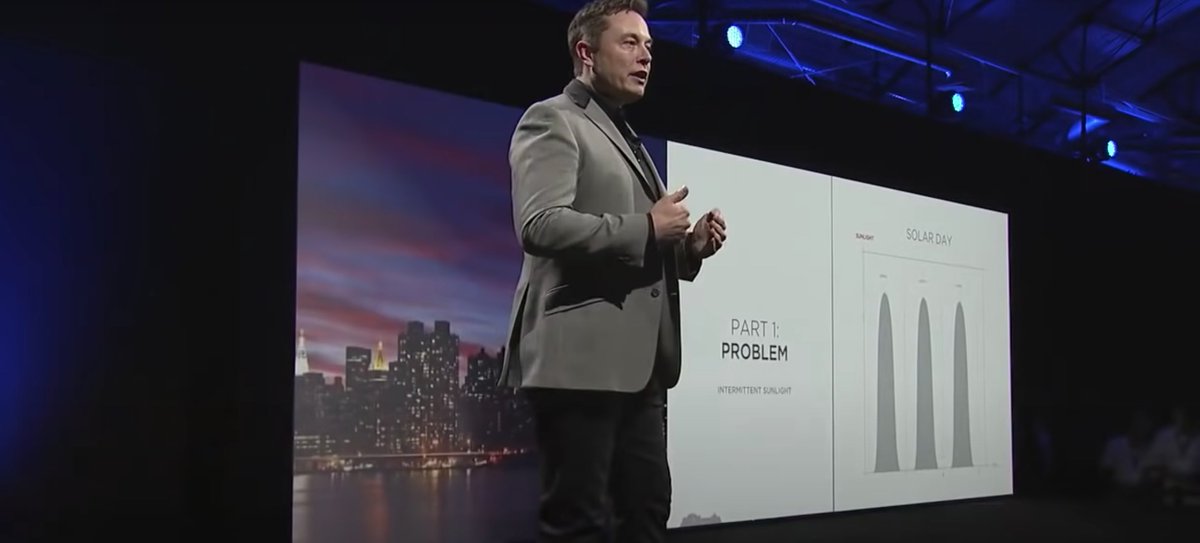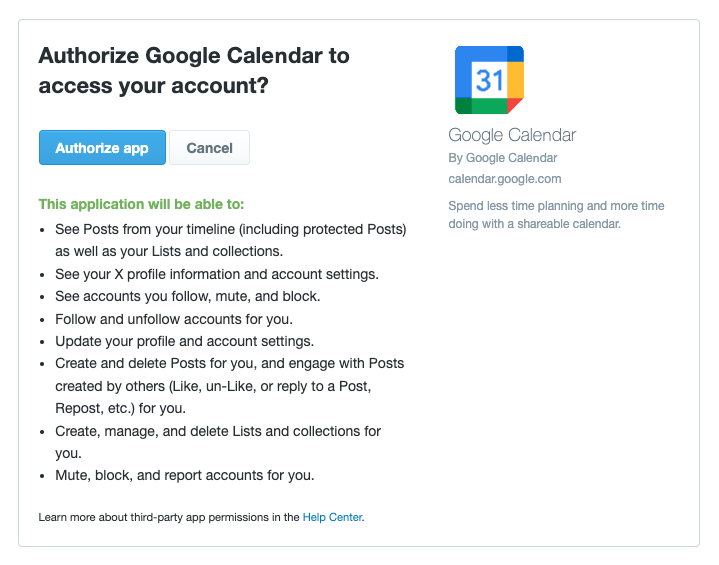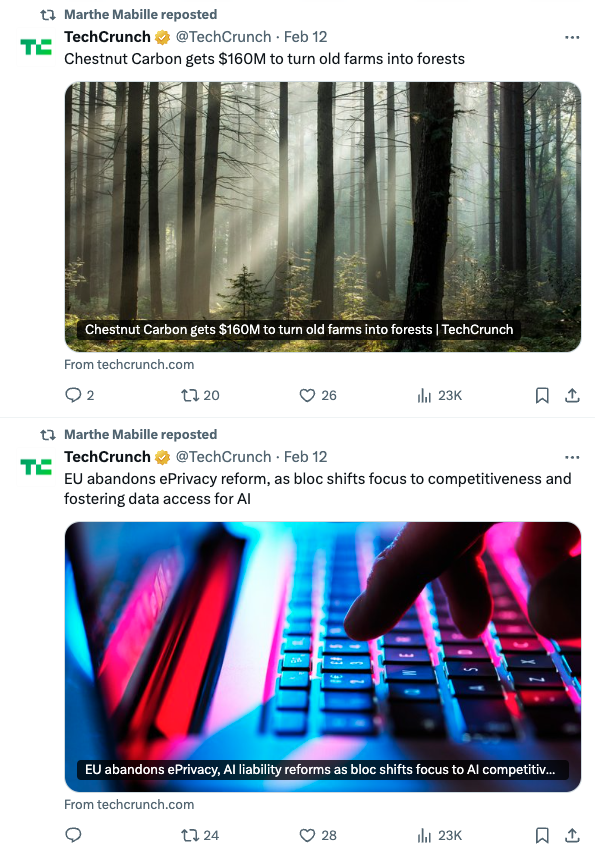Elon Musk is the master of pitching.
He's sold spaceships, flamethrowers and electric cars.
And his framework can be applied to any pitch.
10 simple storytelling tips to nail your next pitch:
He's sold spaceships, flamethrowers and electric cars.
And his framework can be applied to any pitch.
10 simple storytelling tips to nail your next pitch:
Name the enemy
Musk immediately says "This is how it is today... it sucks!"
Start by naming the thing that's getting in the way of your customer's happiness.
It doesn't have to be Darth Vader or The Wicked Witch of the West.
Musk makes it fossil fuels.
Musk immediately says "This is how it is today... it sucks!"
Start by naming the thing that's getting in the way of your customer's happiness.
It doesn't have to be Darth Vader or The Wicked Witch of the West.
Musk makes it fossil fuels.

Agitate the problem
"If we do nothing, this is where we are heading."
Musk shows that we're at a pivotal moment.
If we don't act now, things will get much worse.
"If we do nothing, this is where we are heading."
Musk shows that we're at a pivotal moment.
If we don't act now, things will get much worse.

Spark intrigue
"I think we should collectively do something about this."
The audience roars with excitement.
Musk shows a small blue square on a map of the US.
It's the surface area of solar panels needed to power the entire US.
Make your audience know where you're heading.
"I think we should collectively do something about this."
The audience roars with excitement.
Musk shows a small blue square on a map of the US.
It's the surface area of solar panels needed to power the entire US.
Make your audience know where you're heading.

Offer the missing piece of the puzzle
"As most of you are aware, the sun doesn't shine at night."
What needs to be achieved to get to the promised land?
Demonstrate possibility by showing what needs to happen.
"As most of you are aware, the sun doesn't shine at night."
What needs to be achieved to get to the promised land?
Demonstrate possibility by showing what needs to happen.

Show, don't tell
Musk plays an engaging 1 minute video of the Tesla Powerwall.
If you can't get in front of investors, record a short Loom video.
You get to record your screen and camera whilst giving a clear explanation.
Bring the solution alive and make it personal to them.
Musk plays an engaging 1 minute video of the Tesla Powerwall.
If you can't get in front of investors, record a short Loom video.
You get to record your screen and camera whilst giving a clear explanation.
Bring the solution alive and make it personal to them.

Sell benefits, not features
"It gives you safety, security and a complete affordable solution."
Cut in power – no problem
Snow storm – no problem
Live off grid – no problem
Musk tells the audience exactly how the Tesla Powerwall benefits them.
Not listing boring features.
"It gives you safety, security and a complete affordable solution."
Cut in power – no problem
Snow storm – no problem
Live off grid – no problem
Musk tells the audience exactly how the Tesla Powerwall benefits them.
Not listing boring features.

Create urgency
"You can order the Powerwall right now on the Tesla website."
"Take solar panels, combine it with the Tesla Powerwall and never have to worry about electricity lines."
A solution that works wherever you are.
"You can order the Powerwall right now on the Tesla website."
"Take solar panels, combine it with the Tesla Powerwall and never have to worry about electricity lines."
A solution that works wherever you are.

Build trust
Remove uncertainty from your pitch by giving a demo.
The camera cuts to backstage:
"This entire night has been powered by batteries."
Zero reliance on the grid.
If you're an early stage startup, use:
• Demos
• Customer feedback
• Testimonials
Remove uncertainty from your pitch by giving a demo.
The camera cuts to backstage:
"This entire night has been powered by batteries."
Zero reliance on the grid.
If you're an early stage startup, use:
• Demos
• Customer feedback
• Testimonials

Demonstrate the potential
"The whole system is designed for infinite scalability."
"What's needed to transition the world to sustainable energy?"
160 million powerpacks – transition the US
900 million powerpaks – transition the world
"This is within the power of humanity."
"The whole system is designed for infinite scalability."
"What's needed to transition the world to sustainable energy?"
160 million powerpacks – transition the US
900 million powerpaks – transition the world
"This is within the power of humanity."

Show your long-term vision
Don't pitch to raise money.
Pitch because you have never been more excited about what you could accomplish.
Musk shows that Tesla can't do this alone.
Receiving an investment comes as a byproduct of buying into your long-term vision.
Don't pitch to raise money.
Pitch because you have never been more excited about what you could accomplish.
Musk shows that Tesla can't do this alone.
Receiving an investment comes as a byproduct of buying into your long-term vision.

Musk finishes by using the collective first person to inspire hope:
"This is something we must do, can do and will do."
Make them feel part of your journey already.
People don't like giving stuff up.
"This is something we must do, can do and will do."
Make them feel part of your journey already.
People don't like giving stuff up.
Follow me @thealexbanks for more threads to help you in business and life.
If you liked this thread, you'll love the newsletter.
Subscribe here:
noise.beehiiv.com/subscribe
If you liked this thread, you'll love the newsletter.
Subscribe here:
noise.beehiiv.com/subscribe
I write threads each week, here's another I think you'll enjoy:
https://twitter.com/thealexbanks/status/1575111842237595648
Help everyone master pitching and retweet this thread:
https://twitter.com/thealexbanks/status/1576199006438375424
• • •
Missing some Tweet in this thread? You can try to
force a refresh















